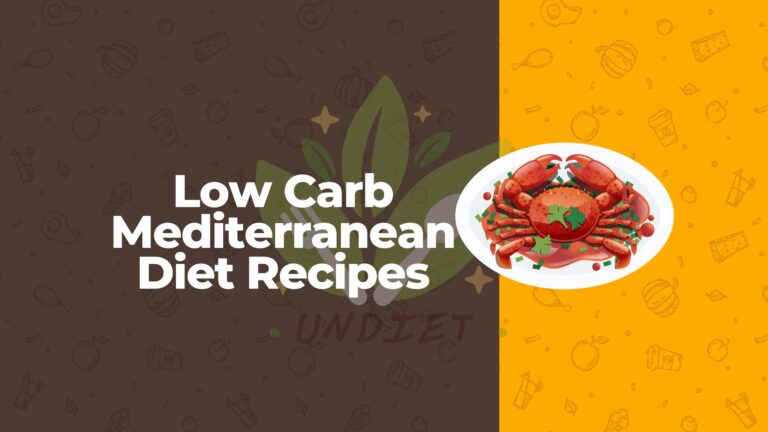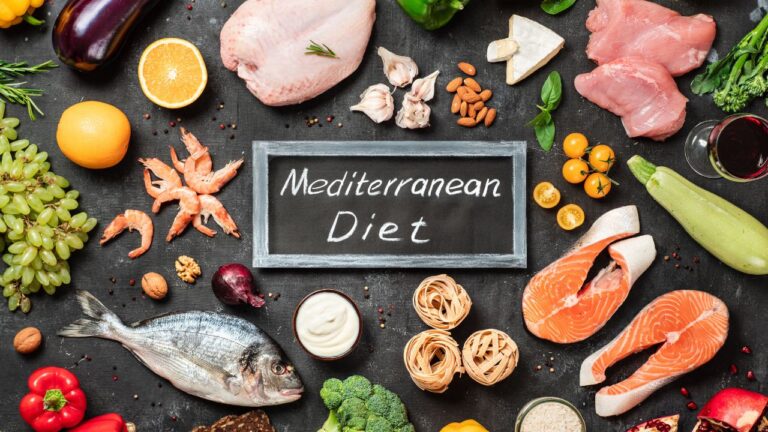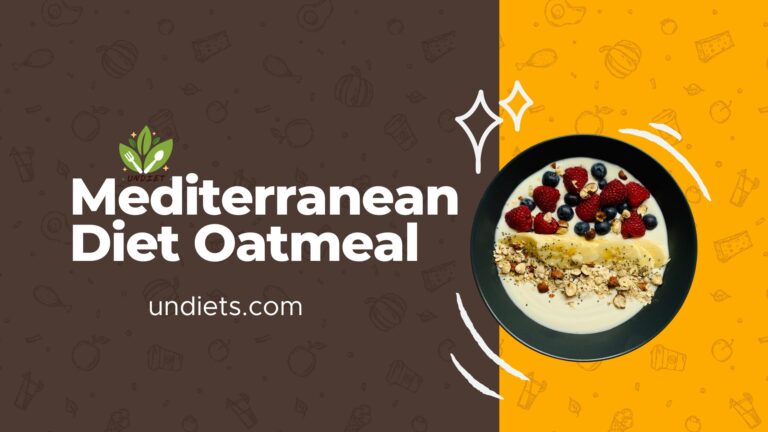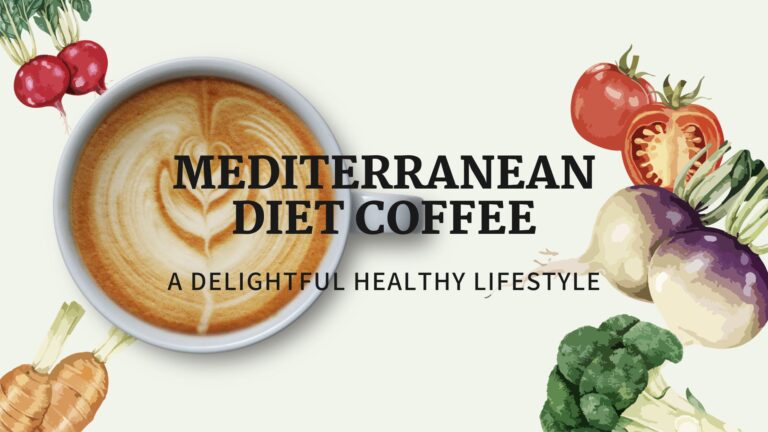Green Mediterranean Diet A Path to Health and Sustainability

The “Green Mediterranean Diet” has emerged as a buzz-worthy topic. This dietary approach combines the principles of the traditional Mediterranean diet with a green twist, emphasizing plant-based foods while maintaining the core principles of the original regimen. In this article, we’ll delve into the intricacies of the Green Mediterranean Diet, exploring its benefits, principles, and practical tips for implementation.
Introduction
There has been a rise in interest in adopting eco-friendly diets in recent years as our awareness of environmental challenges and the urgent need for sustainability has increased. People are becoming more and more interested in finding ways to ensure that the food they eat is both good for their health and the health of the world.
highlighting the rise in interest in eco-friendly and sustainable diets
Our shopping, cooking, and eating habits all reflect this rising concern about sustainability. We’re paying closer attention to where our food comes from, how it’s made, and how our actions affect the environment as people look for ways to lessen their carbon footprint and help the environment, sustainable and eco-friendly diets have taken center stage in this movement.
The Green Mediterranean Diet: Where Sustainability Meets Health
Imagine combining the Mediterranean diet’s time-proven health advantages with sustainability. Let’s introduce the “Green Mediterranean Diet.” It’s a lifestyle choice that incorporates the best of both worlds, not just a diet. This cutting-edge dietary strategy is beneficial for the Earth and your health.
We’ll go into more detail on the typical Mediterranean diet and its health advantages in the sections that follow. Then, we’ll look at how this well-liked diet has developed into a more sustainable, eco-friendly form. Prepare to learn how the Green Mediterranean Diet can benefit not only your body but also the environment.
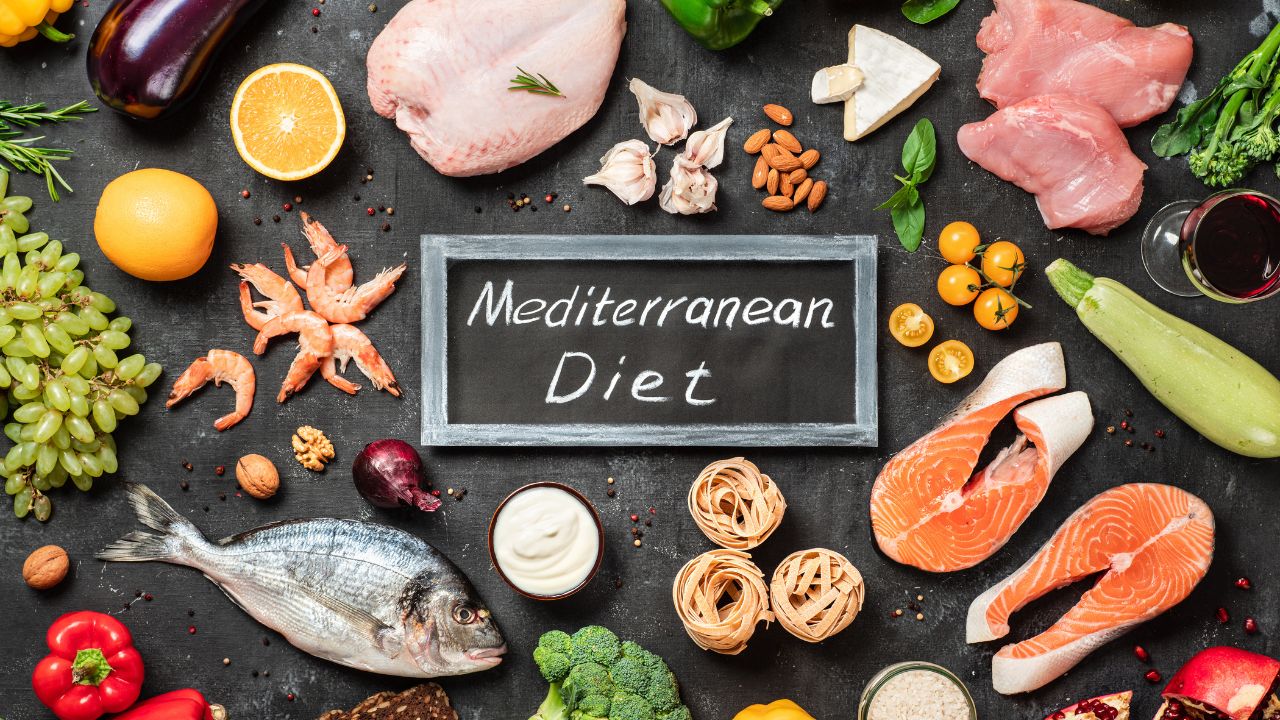
Understanding the Mediterranean Diet
Nutritionists and food lovers all over the world are fascinated by the traditional Mediterranean diet because of its extraordinary fusion of mouthwatering flavors and health-improving properties.
The Health Benefits of the Traditional Mediterranean Diet
The Mediterranean diet’s main focus is on complete, unadulterated foods that have been traditional in the area for ages. These foods consist of:
- Fruits and veggies: A variety of servings of fresh fruits and vegetables are a good source of fiber, vitamins, and minerals. Additionally, they provide potent antioxidants that fight oxidative stress and inflammation, lowering the chance of developing chronic illnesses.
- Whole Grains: Whole grains, such as whole wheat, brown rice, and barley, are high in fiber and complex carbs, which help maintain steady energy levels and digestive health.
- Olive Oil: The heart-healthy fat source of choice for the Mediterranean diet is olive oil. The LDL (bad) cholesterol-lowering effects of this monounsaturated fat are well-known, as is its contribution to overall cardiovascular health.
- Fish, especially oily fish like salmon, chicken, and lentils are key sources of lean protein. These choices minimize the consumption of saturated fat while supplying vital amino acids.
- Nuts and Seeds: Nuts and seeds, like flaxseeds, almonds, and walnuts, provide a source of fiber, protein, and healthy fats. They have been linked to lowered inflammatory responses and enhanced heart health.
- Moderate Dairy: Dairy products like yogurt and cheese, which provide calcium and probiotics for gut health, are frequently included in traditional Mediterranean diets.
Relationship to Prolonged Lifespan and Lower Risk of Chronic Illness
The Mediterranean diet has been linked to lifespan and a lower chance of developing chronic diseases, according to research. Key conclusions are as follows:
- Heart Health: The Mediterranean diet, which has a strong emphasis on fish, vegetables, and olive oil, has been associated with lower rates of heart disease. A healthier cardiovascular system is a result of its capacity to lower inflammation and enhance blood vessel function.
- Weight control: The Mediterranean diet can help with weight management since it emphasizes complete, nutrient-dense meals. Healthy fats are also included, which aids with appetite control while the high fiber content keeps you feeling full.
- Cancer Prevention: According to some studies, eating a Mediterranean-style diet may lower your chance of developing some cancers, including breast and colon cancer. This may be because the diet is rich in antioxidants and has anti-inflammatory characteristics.
- Diabetes Management: The diet’s high fiber content and low glycemic index foods may help control blood sugar levels, making it a possible aid for managing and preventing diabetes.
In essence, the traditional Mediterranean diet takes a holistic approach to nourishing your body and fostering general well-being. It’s not just about what you eat.
Going Green: The Sustainability Factor
The idea of sustainability has evolved from simple buzzwords to become a guiding principle in many facets of our lives, including our meals, in the current day where discussions about climate change, resource depletion, and environmental preservation have become more essential.
The Value of Sustainability in Contemporary Diets
More than a fad, sustainability in modern diets is a moral and practical necessity. Here is why it’s important:
- The resources in our world, such as the amount of arable land, freshwater, and biodiversity, are limited. These resources are under stress due to unsustainable agricultural methods and excessive consumption, endangering their availability for future generations.
- Climate Change Mitigation: The food business produces and transports food, which accounts for a considerable portion of greenhouse gas emissions. Sustainable diets can lower these emissions and lessen the effects of climate change.
- Conservation of Biodiversity: Unsustainable farming methods can result in the loss of plant and animal species as well as the destruction of habitats. Sustainable diets promote the preservation of biodiversity by encouraging a variety of foods that are grown nearby.
- Food waste is a global problem with serious environmental repercussions. A sustainable diet promotes mindful eating, which can help reduce food waste.
The Effect of Traditional Diets on the Environment
Even though they are frequently praised for their richness in culture and cuisine, many traditional diets can have a significant environmental impact. For instance:
- High Meat Consumption: Meat-heavy diets, particularly those high in processed and red meats, have a big impact on deforestation, water pollution, and greenhouse gas emissions. Farming livestock takes a significant amount of land, water, and feed.
- Consuming foods that are out of season or that have been imported from faraway places adds to the excessive energy use and emissions caused by transportation.
- Single-Crop Farming: Single-crop monoculture farming techniques can deplete soil nutrients, increase the demand for chemical fertilizers and pesticides, and disturb regional ecosystems.
Explaining the Idea of a “Green” Diet and How It Affects Sustainability
The phrase “green diet” refers to eating regimens that put sustainability and environmental awareness first. It is a nutritional strategy that aims to energize our bodies while reducing harmful ecological effects.
On top of the conventional Mediterranean diet’s base, the “Green Mediterranean Diet” strengthens its sustainability by:
- Reduce Meat Consumption: Place an emphasis on plant-based proteins and cut back on consumption of red and processed meats. This change has the potential to drastically cut the carbon footprint of the food industry.
- Aiming to reduce the environmental impact of long-distance transportation by promoting the consumption of locally grown and seasonally available foods.
- Advocating for conscious consumption to reduce food waste, which not only conserves resources but also lowers methane emissions from decaying food in landfills, will help to reduce this waste.
People can make decisions that support their health objectives and have a good effect on the health of our planet by adopting a “green” diet like the Green Mediterranean Diet. We’ll explore more into the elements and advantages of this environmentally mindful eating approach in the sections that follow.
What Makes It Green?
The Green Mediterranean Diet, which adheres to the values of eco-awareness and environmental responsibility, is a conscientious and sustainable extension of the classic Mediterranean diet. Let’s explore the main components that make this diet “green.”
Large Intake of Plant-Based Foods, Including Fruits, Vegetables, and Legumes
The Green Mediterranean Diet places a focus on eating a lot of plant-based foods, such as:
- The mainstays of the diet are fruits and vegetables since they offer vital vitamins, minerals, antioxidants, and dietary fiber. Compared to diets based on animals, fruits and vegetables tend to use fewer resources.
- Chickpeas, lentils, and other legumes: Legumes are a sustainable source of plant-based nutrition since they are high in protein and fiber. Compared to animal proteins, they are easier to manufacture in terms of land and water.
Plant-based, poultry, and fish as sustainable sources of protein
The Green Mediterranean Diet prioritizes sustainability while maintaining a balance between different protein sources:
- Fish: Omega-3 fatty acids and protein are found in fatty fish like salmon and mackerel. Selecting fish from sustainable sources aids in safeguarding ocean ecosystems.
- Lean poultry options, such as chicken and turkey, are listed as greener substitutes for red meat.
- Legumes, tofu, tempeh, and seitan are examples of plant-based proteins that provide protein without the environmental impact associated with the production of meat.
Using seasonal and local produce
The Green Mediterranean Diet emphasizes eating seasonally and regionally. This decision offers various advantages for the environment:
- Reduces Food Miles: Eating locally grown or produced food uses less energy and produces fewer emissions during transit.
- Supports Local Agriculture: Purchasing locally produced goods helps local businesses and farmers.
- Seasonal Variety: Eating by the seasons promotes a varied diet and lessens the need for energy-intensive greenhouse production.
Reducing the Consumption of Meat and Milk
The Green Mediterranean Diet promotes cutting back on dairy and meat intake. Here are several ways that this helps the environment:
- Reduced Greenhouse Gas Emissions: The production of beef and lamb, in particular, is linked to significant greenhouse gas emissions. Reduced use of these products aids in reducing climate change.
- Using less resources: Livestock husbandry uses a lot of land, water, and feed. Consuming less meat and dairy helps protect these priceless resources.
A Focus on Foods with Minimal Processing
The Green Mediterranean Diet emphasizes whole or less processed foods. When compared to their highly processed equivalents, these foods often need fewer resources to create. The advantages comprise:
- Lower Energy Consumption: Food processing and packaging use energy and materials. These environmental costs can be reduced by eating entire foods.
- Reduced Packaging Waste: Whole foods frequently have less packaging, which helps reduce the amount of waste that ends up in landfills.
How These Decisions Lessen the Environmental Impact of the Diet
The Green Mediterranean Diet’s intrinsic choices help the environment in several ways, including:
- Lower Greenhouse Gas Emissions: The diet lowers the carbon footprint related to food production by limiting the intake of meat and dairy and prioritizing plant-based foods.
- Resource conservation: Plant-based proteins and a focus on seasonal and local foods help protect energy, water, and land resources.
- Biodiversity preservation is aided by supporting regional, sustainable agriculture and lowering dependency on monoculture farming.
In essence, the Green Mediterranean Diet demonstrates that choosing foods that are eco-friendly need not sacrifice nutrition or flavor. The planet’s health as well as individual health benefit from this. We’ll examine the advantages of this eco-friendly eating strategy for health and its ability to stave off diseases brought on by a changing environment in the parts that follow.

Health Benefits of the Green Mediterranean Diet
The Green Mediterranean Diet offers a holistic approach to nutrition, maintaining the conventional Mediterranean diet’s well-documented health advantages while embracing sustainable and environmentally friendly practices. We’ll explore how this food strategy sustains and improves these health advantages in this section.
Upholding the Traditional Diet’s Health Benefits
The traditional Mediterranean diet, which has long been linked to a host of health advantages, is the basis of the Green Mediterranean Diet. It keeps these advantages by incorporating:
- a variety of nutrient-dense fruits and vegetables that lower the risk of chronic diseases and enhance general health.
- Olive oil contains heart-healthy monounsaturated fats that are well-known for lowering inflammation and LDL (bad) cholesterol.
- Fish and plant-based proteins are lean protein sources that help with general satiety and muscle maintenance.
- Whole grains give you long-lasting energy and dietary fiber for good digestion.
- Nuts, seeds, and legumes provide fiber, protein, and healthy fats that are good for the heart and reduce inflammation.
- moderate dairy diet for gut health, including calcium and probiotics.
Health Impact Research
The Green Mediterranean Diet has been the subject of numerous research that has examined its possible good impacts on several health markers, including:
- Heart Health: According to research, the Green Mediterranean Diet may lower the risk of heart disease since it places a strong emphasis on plant-based foods and heart-healthy fats. Improvements in blood pressure, cholesterol levels, and inflammation have all been linked to better cardiovascular health, according to studies.
- Weight management: Healthy weight management is supported by a focus on whole, nutrient-dense foods and a decrease in the consumption of processed and calorie-dense foods. The Green Mediterranean Diet promotes hunger management by incorporating satiating foods like fiber-rich vegetables and proteins.
- Reduced Risk of Chronic Diseases: Diabetes, cancer, and neurological illnesses can all be reduced by eating a diet high in fruits, vegetables, and antioxidants. These preventive qualities are in line with the Green Mediterranean Diet’s emphasis on plant-based foods.
Possibility of lowering climate-related illnesses
The Green Mediterranean Diet has the potential to support a larger global health endeavor, namely the decrease of diseases linked to the climate, in addition to promoting personal health. Malnutrition, the spread of infectious diseases, and ailments brought on by excessive heat are all tied to climate change. This diet supports initiatives to lessen the negative effects of climate change on human health by encouraging sustainable eating choices that cut greenhouse gas emissions and resource depletion.
By lowering the environmental elements that contribute to these health risks, eating foods with a lower carbon footprint, such as plant-based proteins and locally sourced products, can help fight diseases linked to the climate.
Sustainability and Our Planet
The Green Mediterranean Diet has a major positive environmental impact in addition to providing health benefits. In this section, we’ll look at how this dietary strategy supports sustainability ideals, lowers water use and greenhouse gas emissions, and promotes biodiversity preservation.
The Green Mediterranean Diet Has Positive Environmental Effects
The Green Mediterranean Diet actively works to reduce its environmental impact through several measures:
- Plant-Centered: By placing a strong emphasis on plant-based meals, the diet uses fewer resources in the production of meat and encourages agricultural cultivation, which is typically more environmentally friendly.
- Locally Sourced: Promoting the use of regional and seasonal goods cuts down on the energy and emissions produced by long-distance shipping.
- Reduced Demand for Meat and Dairy: The diet reduces the demand for livestock rearing, which is a significant source of greenhouse gas emissions and resource depletion.
- Fewer resources are needed in food processing and packaging as a result of the emphasis on minimally processed, natural foods.
Reducing Water Use and Greenhouse Gas Emissions
The eco-friendly decisions made as part of the Green Mediterranean Diet directly affect how much water and greenhouse gas emissions are produced:
- Lower Emissions: Methane, a strong greenhouse gas produced by animals, is emitted less when red meat, especially beef, is consumed less frequently. Additionally, the environmental cost of animal agriculture is lessened by the promotion of plant-based proteins.
- Water conservation: Diets high in dairy and meat often demand more water than plant-based diets. Dietary patterns that prioritize fruits, vegetables, and legumes help to preserve limited freshwater supplies.
- Reduced Energy Use: By focusing on locally grown, seasonally available foods, less energy is needed for refrigeration and long-distance transportation, which further decreases the environmental effect of the diet.
Support for Biodiversity Preservation
The following ways the Green Mediterranean Diet indirectly aids biodiversity preservation:
- Diverse Crops: Encouraging a wide variety of fruits, vegetables, and grains fosters crop diversity, which is crucial for the preservation of biodiversity. Monoculture farming, which involves growing a single crop over a wide region, can result in the loss of plant and animal species as well as habitat.
- Supporting Sustainable Agriculture: By promoting ecologically conscious and sustainable agricultural methods, the diet works to mitigate the damaging effects of intensive farming on ecosystems and wildlife habitats.
- Reducing Habitat Degradation: Deforestation, which frequently takes place to provide room for livestock grazing and feed production, can be slowed down by the decreased demand for meat production.
As a result, the Green Mediterranean Diet not only offers a way to improve one’s health and well-being, but it also adheres to sustainability ideals that are advantageous to the environment. This dietary strategy exemplifies how our food choices may support a healthier and more sustainable planet by lowering greenhouse gas emissions, conserving water, and promoting biodiversity preservation.
Practical Tips for Adopting the Green Mediterranean Diet
Making the switch to the Green Mediterranean Diet is rewarding for the environment and your health. Here are some useful pointers to get you started, along with advice on meal preparation and ideas for overcoming any obstacles.
Begin slowly
- Start by including one or two plant-based meals per week in your routine. For instance, give Meatless Mondays a try.
- Increase your diet of fruits, vegetables, and plant-based proteins while gradually decreasing your consumption of meat and dairy.
Adopt plant-based protein sources
- Try including other legumes, like lentils, chickpeas, and black beans, in your meals. They provide a lot of protein and are versatile.
- Include seitan, tempeh, and tofu in your diet. These plant-based forms of protein can be added to salads, stir-fries, and other dishes.
Study Mediterranean Cuisine
- To give your dishes character, experiment with Mediterranean herbs and spices like oregano, thyme, rosemary, and basil.
- As your primary cooking oil and salad dressing, use extra-virgin olive oil. It has a lot of heart-healthy monounsaturated fats.
Make whole grains a priority
- Choose whole grains as the foundation of your meals, such as brown rice, quinoa, whole wheat pasta, and bulgur.
- Make your own whole-wheat flour pizza crust or whole-grain bread.
Consume Plenty of Fruits and Vegetables
- At every meal, try to fill half of your plate with colorful, in-season fruits and vegetables.
- Hummus and fresh fruit or veggie sticks make a healthy and filling snack.
Choices for Sustainable Seafood
- To lessen the influence of your protein choices on the environment, choose fish that has been obtained using wild salmon, sardines, or mackerel.
- For guidance, consult apps or manuals on sustainable seafood.
Portion control and mindful eating
- To prevent overeating, pay attention to portion sizes. Even nutritious meals, if consumed in excess, can lead to weight gain.
- Savour each bite, eat carefully and pay attention to your body’s hunger and fullness cues as you practice mindful eating.
Tips for Meal Planning
- Plan your meals with a concentration on fruits, vegetables, legumes, and plant-based products.
- Plan your meals for the week and make a shopping list to make sure you have all the supplies on hand.
- To make dinner preparation easier, prepare materials in advance by, for example, washing and cutting vegetables or cooking grains and beans.
Advice about cooking
- Combine chickpeas with chopped cucumbers, tomatoes, red onions, and Kalamata olives to make a Mediterranean chickpea salad. Olive oil, lemon juice, and optional feta cheese are used to dress the dish.
- Ratatouille Packed With Vegetables: Use tomatoes, bell peppers, eggplant, and zucchini to make a tasty ratatouille. Olive oil, garlic, and herbs are used to season.
- Quinoa Stuffed Peppers: Stuff cooked quinoa, black beans, corn, and diced tomatoes into bell peppers. Bake until soft and top with cheese shavings.
Challenges and Strategies for Solving Them
Social Situations: Going out to eat or participating in social activities can be difficult. Consider doing some prior research on restaurant menus or offering to bring a plant-based meal to events.
- Cravings: It could take some time to get over a yearning for meat or dairy. Find options you like by experimenting with meat and dairy-free substitutions.
- Nutritional Balance: Speak with a qualified dietitian who specializes in plant-based diets to make sure you are meeting your nutritional requirements. They can assist you in creating a balanced meal plan and resolving any issues.
It’s important to keep in mind that implementing the Green Mediterranean Diet is a personal journey, thus it’s acceptable to move at your own pace. Enjoy the advantages this diet offers in terms of sustainability and health by celebrating minor accomplishments and remaining open to new flavors and ingredients.
Real-Life Success Stories
The Green Mediterranean Diet is a lifestyle that people all around the world have adopted. It is not just a theory. Here, we’ll publish actual success stories of people who have followed this diet, highlighting their improved health and sustainability efforts.
Maria’s Transformation to a Heart-Healthy Woman
The doctor’s concerns about Maria, a 55-year-old grandmother from Spain,’s high cholesterol and blood pressure, prompted her to make a change. She adopted the Green Mediterranean Diet, motivated by her roots in the Mediterranean.
- Health Improvements: Within a few months, Maria’s blood pressure stabilized and her cholesterol levels drastically decreased. She was no longer in need of medication to treat these ailments.
- Contribution to Sustainability: Maria’s choice to consume less meat and prioritize seasonal, local produce allowed her to establish relationships with area farmers. She became a local agriculture supporter in her neighborhood.
The Sardinian Community’s Green Initiative
A small coastal town in Sardinia, Italy, decided to take action in response to the environmental problems brought on by overfishing and unsustainable farming methods. They decided to follow the Green Mediterranean Diet as a group.
- Health Improvements: Diet-related health problems significantly declined in the neighborhood. Residents reported having more energy, and the prevalence of heart disease and obesity also decreased.
- Contribution to sustainability: By encouraging ethical fishing methods and regional farming, the community helped to restore the health of its coastal ecosystems. Fish populations recovered, and a network of small organic farms was built.
Tom’s Eco-Aware Fitness Adventure
Tom, a Californian fitness fanatic, had a strong commitment to both the environment and human health. To better integrate his ideals and way of life, he switched to the Green Mediterranean Diet.
- Tom saw changes in his digestion and skin in addition to maintaining his level of fitness. Proteins from plants, he discovered, improved his muscles’ ability to heal.
- Contribution to Sustainability: Tom made an effort to exercise regularly to lessen his carbon impact. He began riding to the gym and advocated for environmentally friendly exercise methods in his neighborhood.
These true-life success stories demonstrate the Green Mediterranean Diet’s transforming potential. By adopting eco-aware eating habits and lifestyles, individuals and communities have made significant contributions to sustainability in addition to reaping the health benefits of this nutritional approach. These accounts provide powerful illustrations of how one’s food decisions can benefit both their health and the health of the world.
Conclusion
In conclusion, the Green Mediterranean Diet is a harmonious marriage of sustainability and health that offers a wealth of advantages to those who choose it. This nutritional strategy maintains the traditional Mediterranean diet’s well-proven health benefits while embracing eco-friendly ideas, eventually encouraging both individual well-being and a sustainable planet.
Following the Green Mediterranean Diet, people can anticipate:
- Better Health: This diet promotes weight management, heart health, and a decreased chance of chronic illnesses. It provides a means to increase the body’s intake of nutrient-dense foods while decreasing the consumption of less environmentally friendly choices.
- The Green Mediterranean Diet is environmentally responsible since it lowers greenhouse gas emissions, conserves water, and helps to protect biodiversity. It gives people the power to make dietary decisions consistent with their sustainability ideals.
The Green Mediterranean Diet presents a potent remedy in a time when the decisions we make regarding our food have profound effects on the health of our world. It serves as a reminder that every decision we make each day, no matter how minor, has the potential to create a future that is healthier and more sustainable.
So let’s move in the direction of a greener and healthier way of living. Start by consuming more plant-based meals, buying locally and in season, and being aware of your impact on the environment. Every meal you choose to prepare a little more sustainably moves us one step closer to a future where sustainability and good health coexist. For ourselves and future generations, we can forge a more promising and nourishing future by working together.
Additional Resources
Following are some books, documentaries, and websites that are highly suggested for individuals who want to learn more about the Green Mediterranean Diet:
Books:
- “The Blue Zones Kitchen: 100 Recipes to Live to 100” by Dan Buettner
- In this book, the eating patterns of the world’s longest-living individuals are examined, many of whom adhere to a Mediterranean-style diet. It offers cooking instructions and details about their way of life.
- “The Mediterranean Diet for Beginners: The Complete Guide – 40 Delicious Recipes, 7-Day Diet Meal Plan, and 10 Tips for Success” by Rockridge Press
- A simple introduction to the Mediterranean diet with helpful hints and menu planning.
- “Eating on the Wild Side: The Missing Link to Optimum Health” by Jo Robinson
- The nutritional advantages of fruits and vegetables, many of which are essential elements of the Green Mediterranean Diet, are covered in this book.
Documentaries:
- “Forks Over Knives” (2011)
- While not exclusively about the Mediterranean diet, this documentary explores the health benefits of a whole-food, plant-based diet, which aligns with many principles of the Green Mediterranean Diet.
- “Mediterranean Diet: The Full Story” (2016)
- A documentary that provides an in-depth look at the traditional Mediterranean diet and its impact on health.
Websites and Resources:
- Oldways Mediterranean Diet
- The Mediterranean diet is one of the traditional, healthful eating habits that Oldways, a nonprofit organization, advocates. They have a ton of tools, recipes, and information on their website.
- Mediterranean Diet Foundation
- The Mediterranean diet is protected and promoted by this foundation. On their website, they offer research on the diet’s advantages for sustainability and health.
- Environmental Working Group (EWG) Seafood Guide
- The EWG’s Seafood Guide provides details on which fish and seafood options are environmentally friendly for those looking for sustainable seafood options.
These resources can be valuable tools for further exploration and understanding of the Green Mediterranean Diet, its health benefits, and its role in creating a more sustainable and eco-conscious lifestyle.
Frequently Asked Questions for Green Mediterranean Diet
Describe the Green Mediterranean Diet and explain how it differs from the original Mediterranean diet.
The Green Mediterranean Diet is a more environmentally friendly version of the standard Mediterranean diet. While maintaining the original’s healthy components, it emphasizes sustainability more strongly by consuming less meat and dairy, preferring plant-based foods, and encouraging local and seasonal produce.
Can I still savor the Mediterranean tastes while following the Green Mediterranean Diet?
Absolutely! Olive oil, fresh herbs, and vivid vegetables are just a few of the mouthwatering Mediterranean flavors that are embraced by the Green Mediterranean Diet. It promotes the usage of these components to produce savory and filling meals.
What sources of protein on the Green Mediterranean Diet are sustainable?
Fish (particularly those with sustainable certifications), chicken, legumes (such as lentils and chickpeas), tofu, tempeh, and various plant-based proteins are all acceptable sources of sustainable protein in this diet. These alternatives lessen the environmental harm caused by meat eating.
How is the Mediterranean diet environmentally friendly?
By lowering greenhouse gas emissions, protecting water supplies, and promoting biodiversity preservation, this diet is good for the environment. It promotes wise eating decisions that are consistent with sustainability ideals, ultimately leading to a healthier planet.
Is it possible to follow the Green Mediterranean Diet and occasionally indulge in desserts or non-vegetarian food?
While plant-based, sustainable meals are the main focus, it’s perfectly acceptable to occasionally indulge in non-plant-based foods or treats in moderation. The aim is to seek balance in your overall food pattern and make eco-aware decisions whenever possible.

